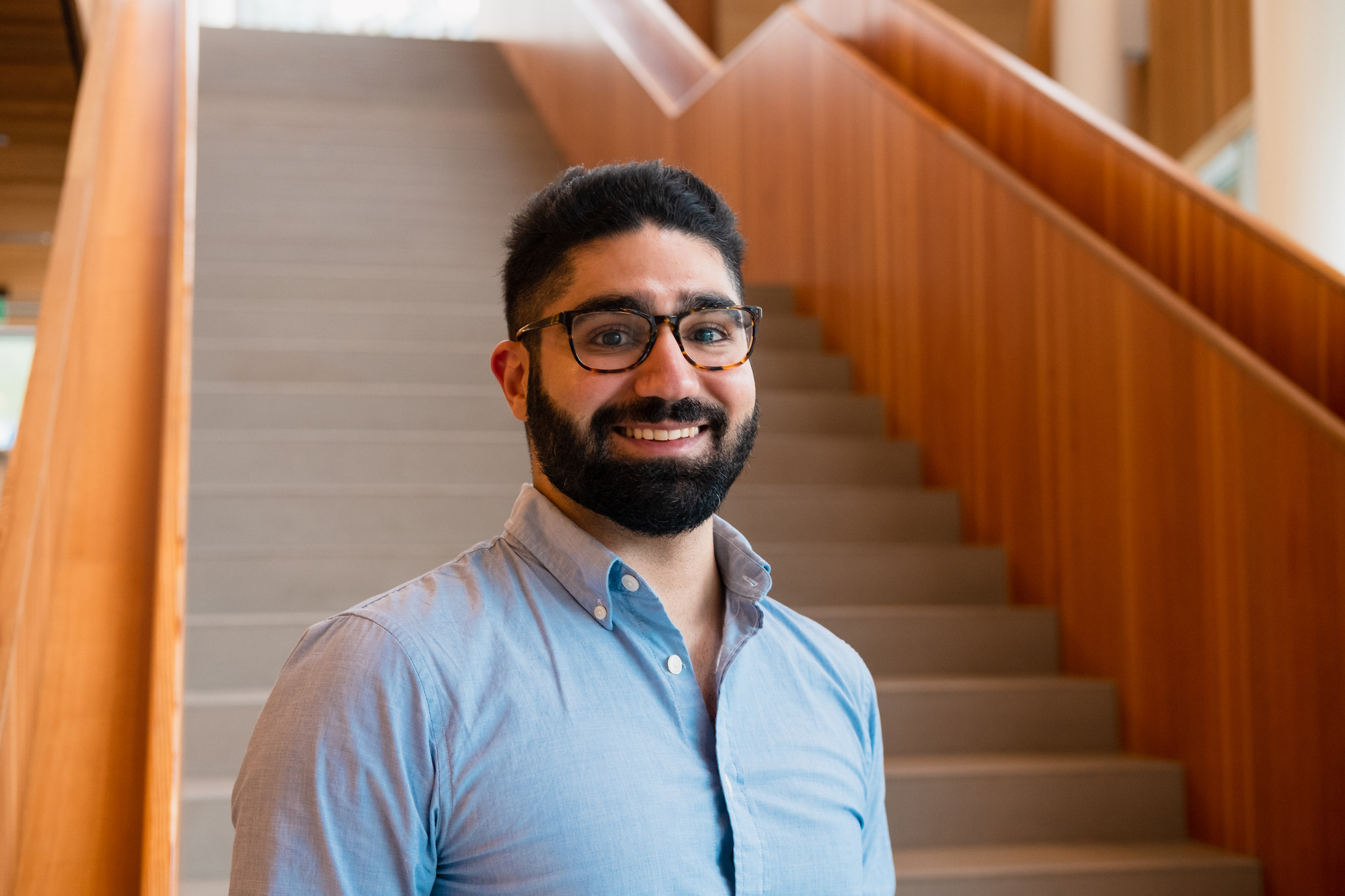Alum’s app helps UBC students find affordable food on campus
September 13, 2024

September 13, 2024

It’s September and more than 10,000 first-year students are joining the UBC Vancouver community. And they’re all looking for a place to eat at a reasonable price—between 30 to 40 per cent of students are food insecure according to UBC’s Food Hub. Thanks to an app called Campus Nutrition co-founded by UBC Science alum Sep Kamal, their search has become much easier.
Kamal (BSc 2017 Biology, MSc 2023, Genome Science and Technology) grew up on campus. His father was a PhD student here, and now works as a Research Associate with UBC Chemistry. Between Kamal, his father, brother and mother there are six UBC degrees in the family.
Kamal has witnessed campus expand over the past decade, and although that means more places to eat, many are too expensive for students on a tight budget. UBC’s geographical isolation from the rest of Vancouver hasn’t made shopping or dining any easier.
“We'd seen campus evolve,” Kamal said. “There were students struggling to find food, while at the same time, there were all these places to eat that many students didn’t know about.”
Enter Campus Nutrition, founded by Kamal, his brother Kasra (BSc 2022 Computer Science) and Arman Mojtabavi (MSc 2021 Integrated Science) in 2019. The not-for-profit app is a guide to groceries and dining on Vancouver Campus, and posts articles about the latest UBC food news written by an in-house editorial team of student volunteers. The team recently published a list of discount food options on campus.
“There was no centralized source other than Google Maps when we launched,” Kamal said. “We realized that Campus Nutrition could provide a centralized source of information about all the different food resources on campus so students can make informed decisions about what and where to eat. We didn't really know what we were doing back then, but we gave it a shot.”
At the time, Kamal was working on his master’s with Dr. Jim Johnson’s diabetes research group at the Life Sciences Institute. His research focused on developing stem cell-based therapies for type 1 diabetes using genomics data to study how pancreatic cells communicate with each other. The goal was to identify proteins that could help generate insulin-producing cells from stem cells in the lab.
“It was part of a multi-year research project at the BC Children's Hospital Research Institute, and it was a pleasure to contribute to it,” he says. “It's an ongoing project and we're in the process of publishing a paper from that work.”
The pivot from genome science to building software wasn’t as abrupt as it might seem.
While he was working on his master’s research, Kamal ran into health challenges that necessitated a long leave of absence from his program. Dr. Johnson provided him with the time and space to heal, and then helped reorient Kamal’s workload from the lab bench to data science—which eased his recovery.
“My master's in genome science and technology was quite data focused. The coursework I did was in statistical methods and coding—I was in the right program for that transition. Over the last 10 years the biomedical research field has pivoted towards data science, driven by advances in genomics technologies.”
Kamal, though, had been bitten by the software and entrepreneurial bug. He fell in love with this idea of building a product, an organization, and a business.
“The beauty of entrepreneurship is that you don’t need a specific background,” he said. “It's about identifying problems and building solutions. Creating Campus Nutrition involved a lot of self-teaching, and it was very rewarding and enjoyable.”
Kamal is now focused on leveraging the experience he earned with Campus Nutrition to transition from biomedical research to a career in product management. And he has some advice for UBC Science students considering starting a business.
“The entrepreneurship scene at UBC is dominated by business and engineering students, but it doesn’t have to be this way. The three co-founders of Campus Nutrition are all science students, and I really encourage science students to consider getting into entrepreneurship. The skills that you learn from science give you a unique perspective and skillset that can lead to great innovations.”
We honour xwməθkwəy̓ əm (Musqueam) on whose ancestral, unceded territory UBC Vancouver is situated. UBC Science is committed to building meaningful relationships with Indigenous peoples so we can advance Reconciliation and ensure traditional ways of knowing enrich our teaching and research.
Learn more: Musqueam First Nation